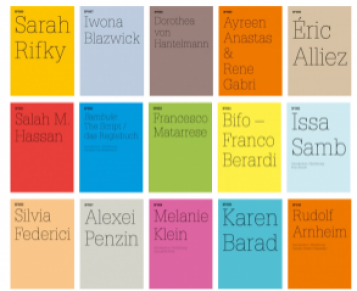- Humanities Career Connections Workshops
- High Stakes Culture Series
- High Stakes Art
- Jill S. Harris Memorial Lecture
- Marc and Constance Jacobson Lecture
- Norman Freehling Visiting Professorship
- Past Programs & Projects
-
- (Re)Emergence: Asian American Histories and Futures
- Humanities Without Walls Predoctoral Career Diversity Summer Workshop
- Humanities Without Walls
- 2023 Humanities Afrofutures
- 2022 HWW Career Diversity Workshop
- 2022 Poetry Blast!
- Octavia Butler Week
- 2021 Poetry Blast!
- The Humanities at Work
- 2018-19 Year of Humanities and Environments
- 2017-18 Year of Archives & Futures
- 2016-17 Year of Humanities & Public Policy
- 2015-16 Year of Conversions
- Early Modern Conversions Project
- MCubed Humanities Projects
- Author's Forum
Projects Involving Digital Media Funded by the MCubed Program
 Digital Humanities Approaches to Popular Periodicals: Quantifying Reading Trends with Time Series Analysis
Digital Humanities Approaches to Popular Periodicals: Quantifying Reading Trends with Time Series Analysis
Peter McIsaac: LSA, Humanities
Ines Ibanez: Natural Resources & Environment
Sugih Jamin: Engineering
About this project: This project uses distant reading and digital humanities techniques to study mainstream German periodicals between 1850 and 1918. Cheaper and more widely read than books, these periodicals shaped the thinking of broad segments of the population just when Germany was developing into one of the leading nations in Europe. Yet because of the tens of thousands of pages in just one periodical run, scholars today cannot possibly close read in the holistic fashion necessary to understand how people read the periodicals in the nineteenth century. The computer-based techniques to be employed range from the generation of index databases and the digitization of texts to programming, statistical analysis, and dynamic visualization of the data.
 Using the Digital to Read Literary Texts in Context
Using the Digital to Read Literary Texts in Context
Sigrid Cordell: Libraries
Justin Joque: Libraries
June Howard: LSA, Humanities
About this project: This project explores the ways in which digital tools open up new ways to understand the social, political, and literary contexts of American regional fiction. Traditional editions of literary texts have drawn on a broad range of materials, like primary source documents and excerpts from literary criticism, to situate literature culturally and intellectually. This project asks how we might leverage the digital to ask new questions about texts and their contexts. In order to answer this question, we'll explore how digital tools, including digitized historicizing documents, mapping, and data visualization, allow us to create a "deep context" for regional literature. The digital lets us not only put these literary texts in their original publishing contexts, but also to layer additional data, such as literacy rates, circulation figures, census information, and maps.
 Digital Environments Cluster Publishing Series
Digital Environments Cluster Publishing Series
Finn Brunton: Information
Tung-Hui Hu: LSA, Humanities
John Cheney-Lippold: LSA, Humanities
About this project: We propose to create a micropress for publishing timely and innovative scholarly work that would not normally fit into the academic publishing system--e.g. an essay too long for a journal article, but too short to be a book; a "one-off" topic of exploration that may not fit well into a scholar's normal research profile; a work that could lose its impact after the 24-month delays inherent in the peer-review process. Small presses have produced not just some of the US's most innovative contemporary poetry but also been used successfully for scholarly distribution: consider, for example, filmmaker Nathaniel Dorsky's "Devotional Cinema," published through Lyn Hejinian's Tuumba Press. They also serve an essential role in the art world; the 100 Notebooks published through the art exhibition documentation built on the tradition of the artist's book to extend the conversation globally. The current scholarly model of publication needs fixing, but the web and online publishing isn't the only answer. A return to the tradition of pamphleteering may help.
 Community, Memory, and Ethical Access to Music from The Ark and the African Field
Community, Memory, and Ethical Access to Music from The Ark and the African Field
Paul Conway: Information
Kelly Askew: LSA, Social Sciences and African Studies Center
David Wallace: Information
About this project: This project will build and test a prototype web-based content management platform for delivering digitized and preserved sound recordings of live performances (1969-85) at Ann Arbor's The Ark music venue and live field recordings (1965-80) made by Leo Sarkisian for the Voice of America's "Music Time in Africa." The rich and deeply evocative collections of sound recordings are preserved at the University of Michigan. The scalable project will (1) digitize a sampling of performances from the early years of The Ark and field recordings from all over Africa; (2) engage communities of musicians, music scholars, students, and fans of Americana and World music in describing songs and the assembling memories of performances at The Ark and in African communities using a common metadata model; and (3) experiment with intellectual property management for orphaned recordings and for musicians and songwriters who wish to release their recorded performances under Creative Commons licenses.
Building Translation Networks at Michigan
Christi Merrill: LSA, Humanities
Heidi Kumao: Art & Design
Dragomir Radev: Information
About this project: We are interested in developing a range of innovative applications that could make the interdisciplinary inquiries taking place through Translation at Michigan more engaging and fun. A NINI grant has already enabled us to start work on a cluster of apps, including the iPad-based That Translation Game! (For more about this initiative, see a recent article "Translation Gains New Ground in American Academy" in Publishing Perspectives.) We hope to find collaborators to cube with who could help us develop further these and other ideas related to questions of translation, so that we could have working prototypes available within the year when we apply for public funding in translation and the digital humanities.

